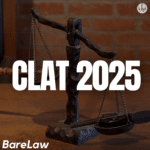
INTRODUCTION:
Superdari is a process in which the police dispose of the property that is related to any offense. The person who is entitled to it shall file an application in a court of law. The person shall be provided with the vehicle on a surety bond. With the surety bond provides that the person shall produce the property before the court. The court may find it helpful as evidence and in the process of trial.
RELEVANT PROVISIONS:
Section 451 of the Code of Criminal Procedure (CrPC) provides that ‘Order of Custody or Disposal of Property’ When any such property is produced before the criminal court for the purpose of any inquiry or trial. The court may make an order as it deems fit for the custody or disposal of such property that has pending the conclusion of the inquiry and trial.
If the property may speedy or natural decay then the court may after the recording of any such evidence consider it to be sold or otherwise disposed of.
The term ‘Property’ shall include—
Property of any kind or the document which is produced before the court or in the custody of the court.
Any property that is considered to be used in the commission of the offence or with help of which the offence has been committed.
Section 165 of the Evidence Act, of 1872 gives power to the judge to put up a question and may order the production of documents. The Judge for the purpose of getting evidence on certain facts that may be facts in the issue or relevant facts or may be irrelevant. The production of documents cannot be objected to by any party and cannot examine any such products without the leave of the court. The section does not authorize the Judge to compel the production of any document.
SUPERDARI APPLICATION:
While writing an application for Superdari it shall include—
- The court before which the matter lies.
- The name of the case.
- FIR No.
- Relevant Sections.
- Concerned Police Station.
- The subject of the Application.
- The application shall include the request for the vehicle to be released.
- The reason for the release of the concerned vehicle shall be mentioned.
- Name of the owner.
- Signature of the Owner.
- Name of the Learned Counsel.
- Signature of the Learned Counsel.
- Address of the Learned Counsel.
- Mobile No. of the Learned Counsel.
- Email of the Learned Counsel.
RELEVANT CASES:
In the case of State v. Tushar Sharma, the accused has stolen a phone from a person. That person got back his mobile once the accused was apprehended by the police. The phone the person received back was Superdari. So, the Mobile shall be considered a property under Section 451 of the Code of Criminal Procedure.
Under Section 451 CrPC a person is allowed to get back the possession of any seized property temporarily. It deals with the power of the court with regard to seizing the property, and disposal of goods and properties due to which a trial or an inquiry is pending. It says that when a person is asked to present a property in enquiry or trial. The Court has the power to pass any order that it feels like custody and dispose of in case of the property.
The Court in Manjit Singh decided up on the conclusion of enquiry or trial. The court may pass an order under Section 452 of the Code of Criminal Procedure. It may pass an order for disposal or delivery to any person who is claiming its possession. The Court may release the property with or without conditions or may have a bond with sureties or not.
The provisions of this Code of Criminal Procedure involve the Subject-Matter of the offence and the matter is seized by the police. It may not be retained for a longer period of time by the Court or the police.
In Jakir Ahmed v. State of Assam, the investigating officer was not able to show that the provided property may be seized for the purpose of further investigation. The handing over of the property to the registered owner may make an adverse impact on the proceedings of the case. The Court stated that it is not proper to keep the property under the custody of the police or the court for a longer period of time. The property is bound to be decayed and may result in a depreciating value of the same. The value may be deprecated because the property not being in use for a considerable period of time. The registered owner shall be allowed to claim custody of the property from the police or the Court. The property may be collected without any adverse report on the case concerned.
CONCLUSION:
In the final order passed for Superdari by the Court the mention of the valuation report may be made or a mention that the valuation report shall be made. A mention of the Charge of Valuation needs to be mentioned in the report. But if there are no impositions on the behalf of the court then the applicant can refuse to pay the charges for valuation. The Investigating Officer may ask to apply for the valuation charges but the applicant is not bound to pay the same unless the court directs him/her to do so. The investigation Officer has no right to keep the property with himself even if the applicant refuses to pay the charges that he is not bound to pay. The Registered Owner has all the Rights to claim his property with the assent of the court.
Also visit – https://indiankanoon.org/search/?formInput=%20superdari%20application&pagenum=20



